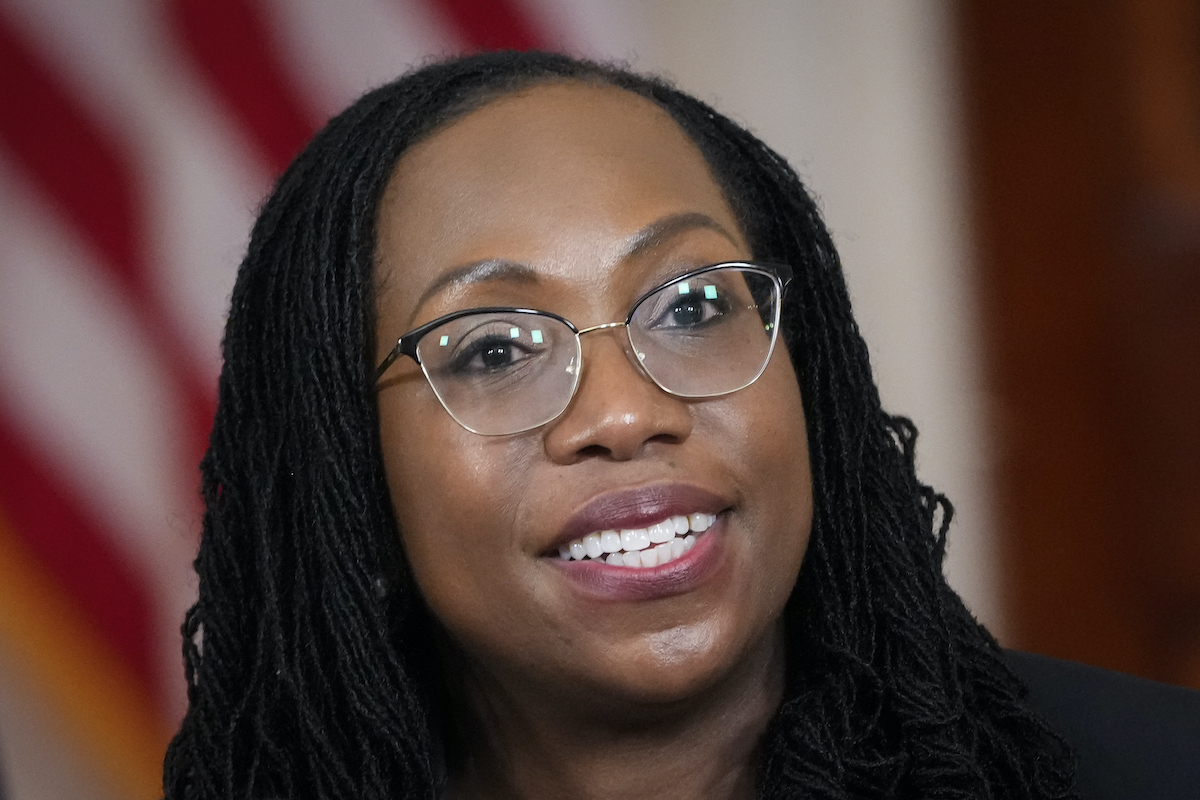President Joe Biden has announced that Ketanji Brown Jackson will be his nominee to the Supreme Court.
The news came two years to the day after then-candidate Joe Biden said that he was pledging to nominate the first-ever Black woman to the Supreme Court. That promise has, predictably, been met with racist skepticism from many on the right who tell on themselves by assuming a person cannot be Black, female, and also qualified for the position.
Biden’s nomination of Jackson leaves little room for that argument. Like Donald Trump’s nominees for the court, Jackson is young (at 51, only Amy Coney Barrett is younger). But unlike Trump’s picks, she is also incredibly qualified.
Jackson is currently a judge sitting on Washington DC’s federal appellate court (and only the second Black woman to hold that position).
She’s also served as a federal public defender, which is far from the usual path for SCOTUS Justices. Just this week, a number of public defender groups sent a letter to Biden imploring him to pick someone from their ranks.
“Too often, past presidents have communicated through their judicial nominations that in order to be appointed to a prestigious federal judgeship, a lawyer should spend their career working at a corporate law firm or as a prosecutor,” the letter reads. “By nominating a former public defender to the highest court in the country, you would make clear that you believe defending the rights of people who cannot afford a lawyer is just as valuable as representing the wealthiest Americans.”
— Rewire News Group (@RewireNewsGroup) February 25, 2022
Jackson also served as a law clerk for Stephen Breyer—the Justice she will be replacing on the court if confirmed.
She has a strong background in criminal justice reform, and has shown an impressive dedication to that cause. This anecdote from Vox particularly sticks out:
In 2003, for example, Jackson left a lucrative job in private practice to spend two years working as a staffer on the US Sentencing Commission, the federal agency that writes guidelines that shape most criminal sentences in federal court. But she eventually decided that, in her own words, she “lacked a practical understanding of the actual workings of the federal criminal justice system” and should spend some time “serving ‘in the trenches’” if she was going to help set sentencing policy.
Yes, she had a great job but wanted to be doing it better, so she left to go work “in the trenches.” That decision paid off, as when she returned, she was nominated by Barack Obama to serve as vice chair of the Sentencing Commission. (Obama also reportedly considered her for nomination to the Supreme Court in 2016—the nomination that instead went to Merrick Garland and was stonewalled by Republicans, so … everything in its own time, I suppose.)
According to CNN, Senate Democratic leaders are hoping to hold a vote on her confirmation by mid-April.
(via CNN, Vox, Rewire News Group, image: Drew Angerer/Getty Images)










Published: Feb 25, 2022 06:01 pm